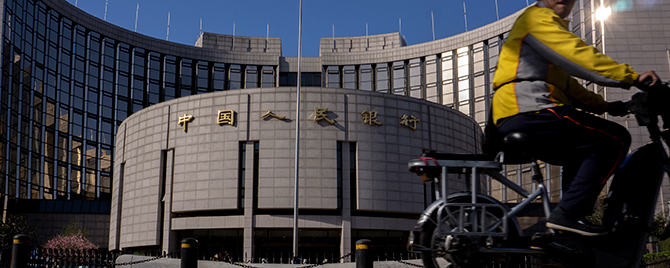SF Fed Blog
-
Boosting the Power of Youth Paychecks: Integrating Financial Capability into Youth Workforce Programs
For many lower-income youth, a first paycheck represents an important opportunity to enter the financial mainstream, avoid costly predatory financial services, and establish positive financial behaviors and attitudes. The MyPath Savings program shows positive, scalable results that support low-income working youth as they bank, save, and build their financial confidence.
-

How Does China’s Slowdown Impact the United States?
How big a concern is China’s slowdown for the U.S. economy? This blog reviews financial and trade linkages between the two countries to explore possible transmission channels. At least for now, the overall direct impact appears to be limited, although U.S. exposure to China is growing.
-

How Modernizing India’s Payment System can Drive Financial Inclusion
India’s heavy reliance on cash has wasted resources and limited financial inclusion, leaving nearly half the population without a bank account. In response to this problem, the government has introduced policies to promote non-cash payments, provide hundreds of millions of new payment-capable accounts to the unbanked, and encourage new technology and innovation throughout the banking sector. The combined effect of these efforts could have a major impact on economic welfare and financial inclusion in the coming years.
-

The Global Impact of Chinese and Japanese Economic Growth
Thirty years ago, Japan was growing so quickly that some predicted it would overtake the United States, while China’s economy was small and closed. Much has changed. China has overtaken Japan as the world’s second largest economy, but as China shifts to a “new normal” of lower growth, observers are increasingly concerned that it may no longer serve as the world’s economic engine. Meanwhile, proactive Japanese economic policy has renewed interest in Japan’s prospects.
-

Korea’s Shipbuilders and Lenders Navigate an Oil Storm
Persistent overcapacity, high inventories, a strong U.S. dollar, and global economic uncertainties have had a substantial impact on oil prices. In response, oil companies have slashed capital expenditures, leading to significant losses at South Korean shipbuilders exposed to oil rig construction. In anticipation of further losses on their shipbuilder exposure, Korean banks have been increasing their loan loss provisions to shore up their allowances and are reporting a considerable impact on earnings.
-

What’s Behind the Slowdown in Asian Cross-Border Lending?
The growth of cross-border lending in Asia has slowed abruptly. Faced with a growing debt burden, Asian borrowers are reducing their exposure to foreign debt. This trend is driven by the appreciation of the dollar versus many Asian currencies.
-
Economic Opportunity + a National Culture of Health: Did You Miss a Game-changer?
If you missed the speeches by Williams and Lavizzo-Mourey that closed out the National Interagency Community Reinvestment Conference (NICRC) in Los Angeles, you missed a game changer.
-

A Regional Comparison of China’s New Deposit Insurance System
With the introduction of deposit insurance in China last year, all the large Asian economies have adopted deposit insurance programs. While China’s deposit insurance shares many similar objectives and design features of other deposit insurance programs in Asia, the specifics of China’s plan differ in many aspects.
-

The Bank of Japan Goes Negative: What Does That Mean?
The Bank of Japan surprised markets last month by implementing a negative interest rate policy as part of its continued fight against deflation. Negative rates turn the traditional rules of finance on their head and may confuse some market participants. Though ordinary borrowers and savers are unlikely to see negative interest rates at this stage, the new regime will impact the Japanese banking system and possibly the country’s international financial linkages.
-

China’s Shifting Policy Anchors
Market participants are anxious to find new policy anchors as China moves towards a “New Normal.” But China’s growth and policy direction are likely to be less predictable in the future, a fact that market participants will have to learn to accept.